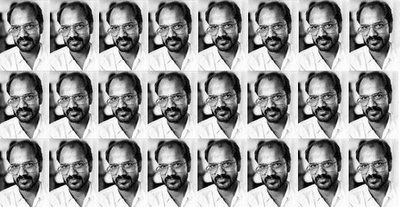
I just got off the phone with Lilamani Pokharel. I must be getting a reputation among these seven party top dogs.
This was the first time I ever talked to Pokharel. He has the reputation of being an intellectual. He lived upto it. I mean, these are people I have been meeting in the newspapers for a long time now. And now I am working with them.
My first curiosity with him was to do with the 12 point agreement between the Maoists and the seven parties that is the talk of the town. (Prachanda Statement) I told him I saw two points of contradiction. One was that the seven parties were for House revival, and the Maoists were not. Another was that the document envisions there still being two standing armies in the country when the country goes through a constituent assembly.
He said this document was only the first step. The dialogue will go on. The understanding will be further polished. He said even on the House revival issue the Maoists were okay with the fact that we might have two different starting points as long as the end goal is a constituent assembly.
This is early stage work, he emphasized. He said it was historic that all the political forces in the country had come around to the idea of bringing an autocratic monarchy to an end. Another was that the Maoists had formally come around to the idea of peaceful contests with the other parties.
The separate tracks to a constituent assembly are not a matter of contention between the parties and the Maoists, he said. He said the biggest reason for the House revival stand was to make sure there was no constitutional vacuum when the country goes to a constituent assembly.
I honed in on this House revival issue. He confirmed my suspicions that the House issue was the pet agenda of the Nepali Congress. The other six parties are not insistent upon the idea. But all are behind it for the sake of seven party unity.
On the other hand, he said, there is a growing feeling among the seven parties that reviving the House can play into the hands of the Monarchists and those who are totally opposed to the idea of a new constitution for the country. A revived House might end up being a boon for the king, he said.
His party, the People's Front, has been for an interim government and a constituent assembly for four years now, he said. The Nepali Congress is for House revival. The UML is for an all party government. The People's Front is for an interim government. The latter two are legitimate departure points. But despite the differences the seven parties are united behind the House revival idea.
Then he uttered a sweet phrase: continuous movement. As opposed to a casual movement. I asked him to define the concept, to elaborate upon it. He talked of a total embargo of the state machinery, of bringing it to a total standstill. There would be a total mobilization. It would be a daily movement, not just a movement where you show up one afternoon a week for a mass meeting.
I strongly feel the seven parties need to come around to this idea. Only such a movement will unseat this regime. Ladies and gentlemen, meet Gyanendra.
I asked why the UML and the Congress have been holding separate mass meetings. Is that a show of disunity among the seven parties? He said that was not the case. This was early stage, and they needed to do that to mobilize their cadres. But come December 10, all seven parties were going to go ahead together. Then the movement will really take off.
I asked about the February 8 elections. He said the agreement was to actively work against it. I asked if this regime can be brought down before February. He said an attempt can be made, but it would be unwise to have a deadline. He said the leaders were fully aware the king is trying to legitimize his illegitimate rule through these elections, and he is also trying to say to the world he is for democracy after all.
I asked him how the Nepali diaspora could contribute. He said you do that primarily by shaping world opinion. Spread the word. Foreign aid has to be stopped to shake this regime. Economic sanctions have to be looked into.
Then he uttered another sweet phrase. He mentioned moral as well as logistical support was needed. I have been in disagreement with those who think only moral support is needed. I informed him of the efforts already underway at this end. I suggested we build a formal structure between the seven parties and the diaspora efforts to raise funds. He said he will get to it right away. It has to be a seven party thing.
He said the seven parties are helping the Maoists shed the terrorist tag. That is a major achievement.
Then I inquired upon his personal health because I had read in the news reports after he got arrested after 2/1 that he was having issues. He said working on his health and working on the movement had to go together.
Phone Talk With Madhav Nepal, Hridayesh Tripathy